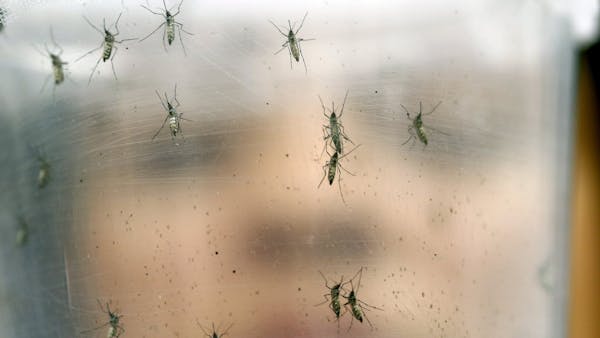Minnesota health officials say they expect to see more cases of the Zika virus as travelers return from infected areas, but added that there is no risk it will spread widely within the state.
"There really is very little concern here," said Michael Osterholm, director of the Center for Infectious Disease Research and Policy at the University of Minnesota. "The real concern is among people traveling to these countries — and even there, the concern is primarily in pregnant women."
Although a causal link has not been established, health researchers are concerned that the virus is contributing to an increased number of babies born in South America with microcephaly, a birth defect that leads to abnormally small heads.
Federal health authorities recommend that pregnant women or those considering a pregnancy avoid travel to Central and South America, including popular tourist destinations such as Mexico, Puerto Rico and Brazil.
"Some of these countries are very popular spring break destinations," said Patsy Stinchfield, a nurse practitioner and director of infection prevention and control at Children's Hospitals and Clinics of Minnesota.
Stinchfield said the list of countries at risk is constantly evolving, adding that anyone planning international travel should check government websites to see if Zika has spread to their destination.
In addition, she said, visitors to the Children's emergency department will be asked if they have traveled internationally.
Zika is transmitted by a type of mosquito that has not been detected in Minnesota.
"Zika virus is not a health threat for people in Minnesota, but it is a reminder that anyone traveling to a different part of the world should be mindful of the health issues present in that region," said state Health Commissioner Dr. Ed Ehlinger.
At the University of Minnesota, researchers are watching the virus and how it might evolve as it spreads.
Pamela Skinner, a biomedical sciences professor at the university, said it might be possible for mosquitoes in Minnesota to pick up the virus by biting an already-infected person and then passing the virus to others, although that is speculation for now. "It's a good thing it's winter and there aren't any mosquitoes around right now," she said.
Minnesota has one confirmed case of Zika infection this year, in an Anoka County woman in her 60s who had recently traveled to Honduras. She was not hospitalized and is expected to recover.
Youssef Rddad, a University of Minnesota student on assignment for the Star Tribune, contributed to this report.
Glenn Howatt • 612-673-7192

Fired Mpls. teacher accuses management of 'cancerous rot'

Jill Biden rallies women, teachers for the Biden-Harris ticket in Bloomington speeches
Neighbors, city officials at odds over Rochester lake dam

Souhan: This is KAT's chance to prove Flip Saunders was right

